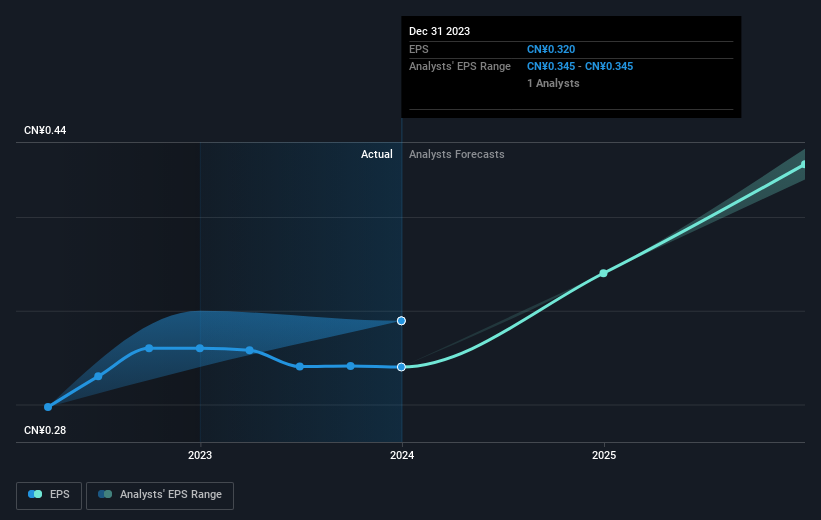Stock Analysis
- Hong Kong
- /
- Electronic Equipment and Components
- /
- SEHK:3969
China Railway Signal & Communication (HKG:3969) shareholders have endured a 33% loss from investing in the stock five years ago

While not a mind-blowing move, it is good to see that the China Railway Signal & Communication Corporation Limited (HKG:3969) share price has gained 14% in the last three months. But over the last half decade, the stock has not performed well. You would have done a lot better buying an index fund, since the stock has dropped 51% in that half decade.
With that in mind, it's worth seeing if the company's underlying fundamentals have been the driver of long term performance, or if there are some discrepancies.
See our latest analysis for China Railway Signal & Communication
There is no denying that markets are sometimes efficient, but prices do not always reflect underlying business performance. One imperfect but simple way to consider how the market perception of a company has shifted is to compare the change in the earnings per share (EPS) with the share price movement.
Looking back five years, both China Railway Signal & Communication's share price and EPS declined; the latter at a rate of 2.9% per year. This reduction in EPS is less than the 13% annual reduction in the share price. This implies that the market is more cautious about the business these days. The less favorable sentiment is reflected in its current P/E ratio of 8.25.
You can see how EPS has changed over time in the image below (click on the chart to see the exact values).

Dive deeper into China Railway Signal & Communication's key metrics by checking this interactive graph of China Railway Signal & Communication's earnings, revenue and cash flow.
What About Dividends?
When looking at investment returns, it is important to consider the difference between total shareholder return (TSR) and share price return. The TSR is a return calculation that accounts for the value of cash dividends (assuming that any dividend received was reinvested) and the calculated value of any discounted capital raisings and spin-offs. So for companies that pay a generous dividend, the TSR is often a lot higher than the share price return. In the case of China Railway Signal & Communication, it has a TSR of -33% for the last 5 years. That exceeds its share price return that we previously mentioned. The dividends paid by the company have thusly boosted the total shareholder return.
A Different Perspective
It's nice to see that China Railway Signal & Communication shareholders have received a total shareholder return of 3.5% over the last year. And that does include the dividend. There's no doubt those recent returns are much better than the TSR loss of 6% per year over five years. We generally put more weight on the long term performance over the short term, but the recent improvement could hint at a (positive) inflection point within the business. While it is well worth considering the different impacts that market conditions can have on the share price, there are other factors that are even more important. Case in point: We've spotted 1 warning sign for China Railway Signal & Communication you should be aware of.
If you are like me, then you will not want to miss this free list of growing companies that insiders are buying.
Please note, the market returns quoted in this article reflect the market weighted average returns of stocks that currently trade on Hong Kong exchanges.
Valuation is complex, but we're helping make it simple.
Find out whether China Railway Signal & Communication is potentially over or undervalued by checking out our comprehensive analysis, which includes fair value estimates, risks and warnings, dividends, insider transactions and financial health.
View the Free AnalysisHave feedback on this article? Concerned about the content? Get in touch with us directly. Alternatively, email editorial-team (at) simplywallst.com.
This article by Simply Wall St is general in nature. We provide commentary based on historical data and analyst forecasts only using an unbiased methodology and our articles are not intended to be financial advice. It does not constitute a recommendation to buy or sell any stock, and does not take account of your objectives, or your financial situation. We aim to bring you long-term focused analysis driven by fundamental data. Note that our analysis may not factor in the latest price-sensitive company announcements or qualitative material. Simply Wall St has no position in any stocks mentioned.
About SEHK:3969
China Railway Signal & Communication
China Railway Signal & Communication Corporation Limited, together with its subsidiaries, provides rail transportation control system solutions in China and internationally.
Very undervalued with excellent balance sheet.

